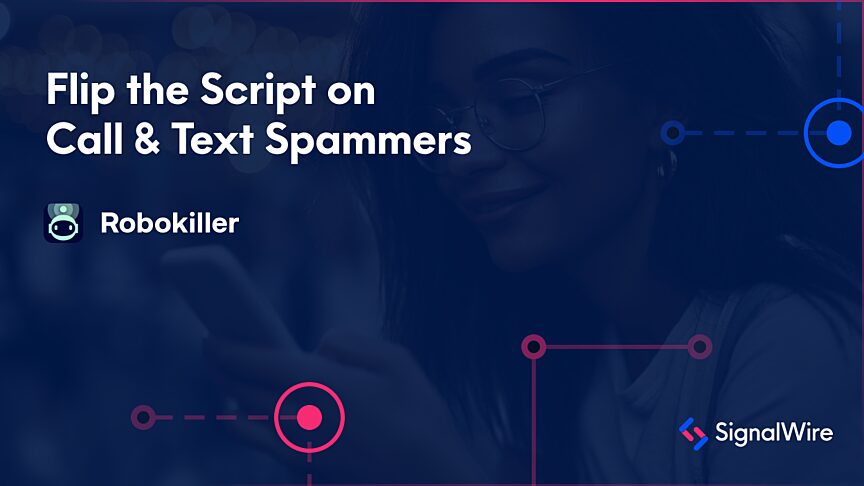Unwanted spam and scam calls have exploded in recent years, fueled by caller ID spoofing, Voice over IP numbering flexibility, and data exposure. This article explains why robocalls and phone scams are so pervasive, how spammers obtain and misuse phone numbers, and practical strategies you can use — from blocking numbers to building playful bot countermeasures — to lessen their impact on your own calling experience.
When it comes to the communications industry, nothing, and I mean nothing is worse that Spam. Spam calls and messages are worse than Spam “meat” in a can. In 2016, people in the United States of America were scammed out of more than $350 million dollars by over 29 billion robocalls. That’s about 90 robocalls per person and the number is only rising. But aren’t most people observant enough to notice a scam when they see one? It’s not always that simple…
Caller ID spoofing:
Caller ID spoofing is the worst. At this point in time, a lot of us can recognize a spam number when we see it and although listening to our ringtone for the 1,000th time can get a bit redundant, no harm is usually done. The problem arises when I recognize the area code as local. I fall for it every time. “Oh, shoot. Is this someone I know? Maybe it’s my pizza that I ordered!” No, it’s not pizza. It’s those darn scammers. Many of these scammers can spoof caller ID from a special internet service that specializes in such trickery.
One of the most popular use of Caller ID spoofing is the Ammyy scam that cost people millions of dollars worldwide. Scammers pretending to be Microsoft tech support can display their ID as “Microsoft,” making it easier to lure in victims.
Scammers can also choose whatever area code they like thanks to modern technology. Back in the good old days, having a specific area code meant your number was registered to a specific area in a specific city. Now, phone lines that utilize Voice Over IP allow people to choose their own area codes, and most cell phone providers let you choose your own phone number. This makes it very easy to target a specific area because people are more likely to trust the number. Tricky, Tricky…
In the United States of America, and many other countries, it is illegal to falsify Caller ID information. Unfortunately, this happens anyways. So how do we fight back?
Spam vs. scam and how they got my number:
Even if you’re not going to fall for a fake IRS scam, the incessant amount of unwanted phone calls can get overwhelming fairly quickly. While spammers are calling you legally and offering you real products that you’ll actually receive, they are still incredibly irritating. “No, Joseph from ‘Island Oasis Travel Co.,’ I don’t want to invest in a timeshare in Philadelphia. But thanks for asking.
Scammers are much more malicious. Unfortunately, the current chain of natural disasters like the hurricanes on the East Coast are a popular way to scam people out of money. Many of these scammers claim to be collecting money for charity and just pocket the money.
But How did they get my number?
- Any time you write your phone number down someone can get ahold of it. Any time. It could be a signature at the end of your email, signing up for a rewards program, ordering a pizza, signing up for an online service, online shopping sprees, etc… Big Data can easily gather a lot of information about you off the web. This doesn’t mean you should never share your number, but if you really really hate spam calls…maybe think twice before signing up for a triple scoop rewards program at that ice cream shop you never go to.
- The dreaded “Terms of Use.” I don’t know about you, but I literally never read the terms of use sections of things, I always just check the box. Call it my tragic flaw. Many times, the terms of silly apps include selling your info.
- They literally just guessed. Our current technology can dial zillions of random phone numbers without breaking a sweat.
- Automatic Number Identification (or ANI) automatically identifies and stores your number and can match it with other online digital markers that are associated with you when you dial numbers that start with an 800, 888, or 900. This “ANI” is only slightly less annoying than the way Jar Jar Binks says it.
How to stop the spam calls:
Stopping scammers isn’t that easy. While the telecommunications industry is working hard to block these calls, there are many complicated legal hurdles to cross. In 2016, the FCC started a “robocall strike force” that was made up of 33 different telecom companies. The task force reported that they are currently working towards fixes that involve developing a standard authentication technology in order to verify exactly where these calls come from. At the moment, this solution is difficult because any call is able to got through multiple networks.
Get revenge with Lenny, or create your own AI Lenny Bot:
- With the help of SignalWire AI, and some code that's already written for you, build your own Lenny bot to waste the spammers' time.
Lenny is great at getting revenge:
To Block a number using FreeSWITCH:
- If you are using FreeSWITCH and need to block spam calls, follow these instructions to add them to the Blacklist.
Google their number.
- Ok, this doesn’t stop spam calls, but it helps you to verify you aren’t falling for any trickery. You can reverse search a number that you may be suspicious of to see if it is linked to a known scam.
Register your number.
- If you live in America, you can register your number on the FTC’s Do Not Call list. Cell numbers as well as landlines can be registered to this number. It won’t eliminate unwanted calls, but it will reduce the number.
- Spammers in the US can still legally call you in the following cases:
- Companies you have had a relationship in the last 18 months. You might have made a purchase or simply requested information. They may legally call for for the next year and a half.
- Political parties or organizations seeking your vote.
- Organizations taking a survey.
- Charitable organizations.
- Scammers who are operating outside the U.S. and those that do not care that they are breaking the law.
Block them!
- Unfortunately, to block a scammer they have to call you at least once which is irritating. However, if it prevents the inevitable second or third call back, it’s worth it. Most smartphones and cell providers have a feature where you can select a specific number and block it so you never hear another ring from them again! (This is also very useful for ex-boyfriends or girlfriends…)
Lie…
- If you really want to sign up for something that requires your number just because they want it, give them an alternate or fake number or email address. Or the number of your worst enemy. But you didn’t get that idea from me.
Don’t pick up and Never say “yes”
- If you don’t recognize the number, send it straight to voicemail. If you do pick up for any reason, even for a lighthearted prank, never say the word “yes,” or offer any personal info. Scammers, especially robocalls, record your “yes” and use it later. They might already have some personal info about you due to a data breach and can use that “yes” to verify fraudulent charges, to credit cards or phone or cable subscriptions. Or, they may use it to sign you up for unwanted services and later demand payment using your voice as proof. If you’re going to prank the scammers, say “no.”
Never go on the internet, call anyone, or answer any calls. EVER.
- This one is a joke…but hey. It’d work.
Frequently asked questions
Why are spam and scam calls so common today?
Scammers use caller ID spoofing, VoIP number flexibility, and large datasets to make millions of robocalls easily, often disguising themselves with familiar area codes and trusted names.
How do spammers get people’s phone numbers?
Phone numbers can be harvested from online forms, email signatures, contests, data breaches, and even by guessing blocks of numbers, making many personal numbers widely available.
What is caller ID spoofing?
Caller ID spoofing is when scammers deliberately fake the displayed calling number or name using specialized internet services, making their calls appear local or trustworthy.
How can I reduce the number of unwanted calls I receive?
You can block individual numbers on your phone or carrier, register your number with the national Do Not Call list, and use tools and services that screen or filter spam calls.
Can playful techniques like “wasting a spammer’s time” help?
Some people use bots like “Lenny” to occupy spammer call time, but these are mostly entertainment; effective long-term reduction relies on broader call-blocking, registration tools, and carrier-level authentication technologies.



